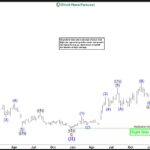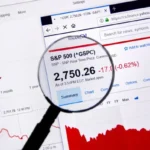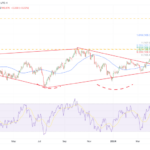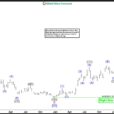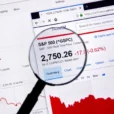
With decades upon decades of data to sift through, many stock market pundits will have you believe that markets can be bought and sold according to seasonal effects. Of course, as dividend growth investors we are more concerned with investing in the market at all times rather than trying to time the market. With the magic of compounding the saying, “time in the market is better than timing the market,” certainly holds true. But still, there are many out there who believe in stock market seasonality to guide their investment decisions. Let’s examine some of the more common stock market seasonal themes that numerous talking heads and media experts like to tout.
January Effect
This is a term that is often discussed every calendar new year. The “January effect” actually has come to define two distinct investment phenomena. The first definition of the January effect suggests that the rest of the calendar year will perform as January does. The thinking behind this definition states that, “As goes January, so goes the year.” Of course, this type of observation may be a little too simplistic for many investors to digest as one month of stock market gains or losses cannot truly define an entire year. The second definition of the January effect has its roots with investors seeking to capitalize on stock losses for the current year. The thinking behind this phenomena suggests that investors sell their stocks at year end to harvest losses in order to minimize their current year tax burden. As a result of all the stock selling towards the year end prices depreciate only to recover when the buying back begins at the start of the new year raising prices.
Sell In May And Go Away
Another famous term that always flowers around spring time is the famous, “Sell in May and go away.” The exact cause for this stock market pattern is still largely in question but many of the market pundits will have you believe that the strongest period of any stock market calendar year rests between the months of November to April therefore at the start of May it would be wise to sell your stocks and hold cash till the traditionally stronger autumn season. Of course, as dividend growth investors the very idea of holding cash instead of dividend paying stocks for about six months is sacrilegious. Think of all the lost compounding time for your dividends to achieve.




